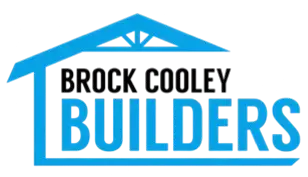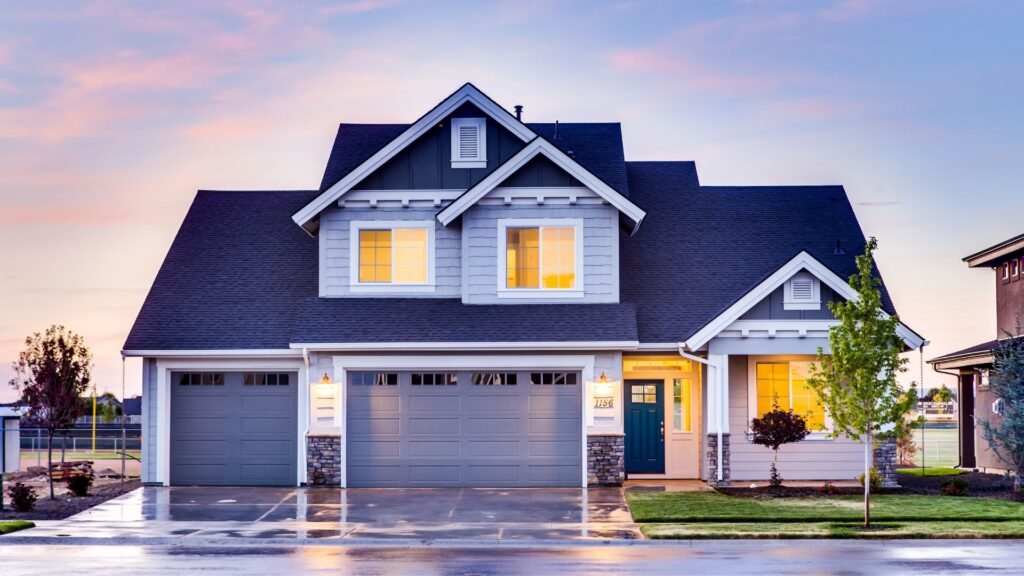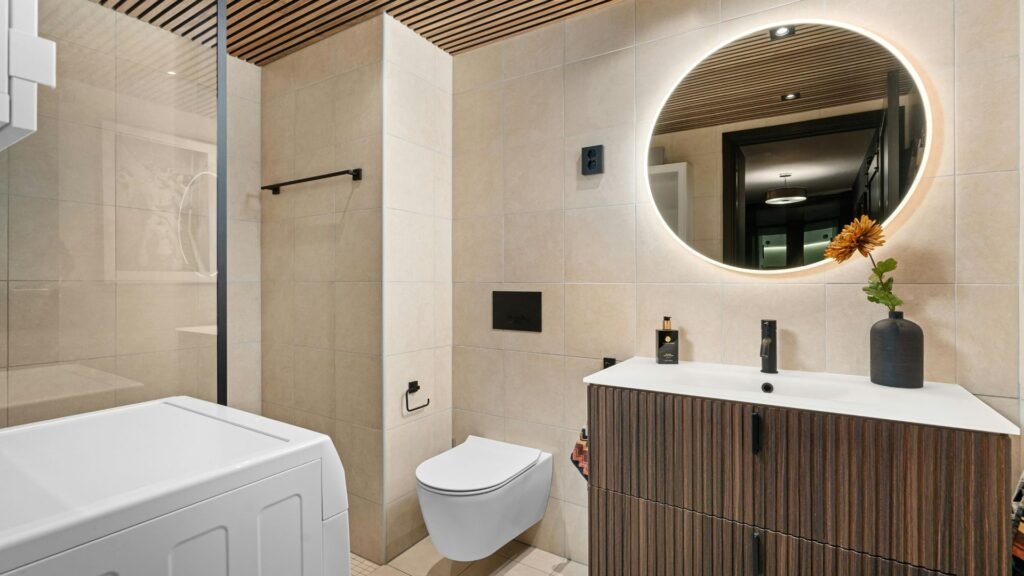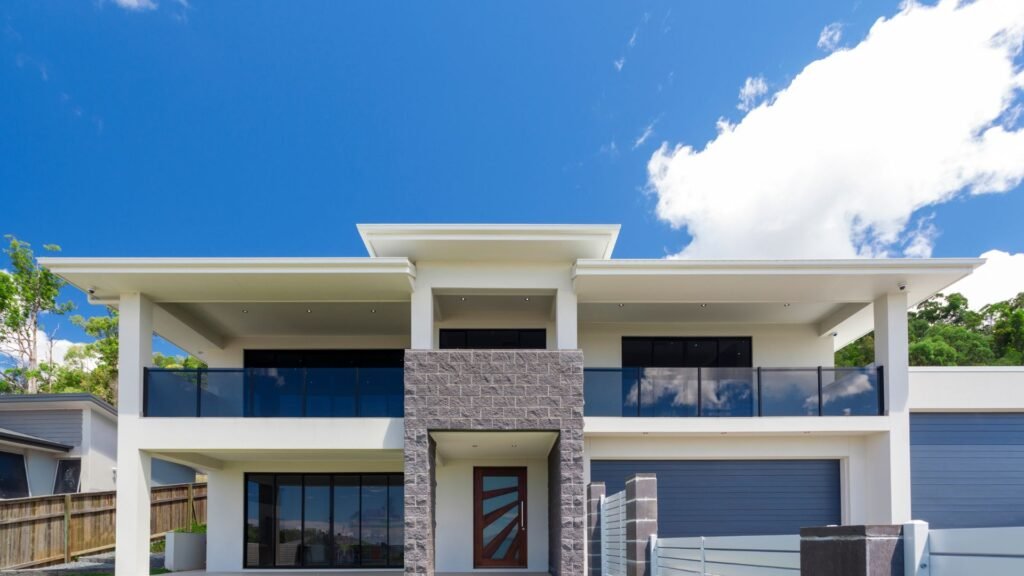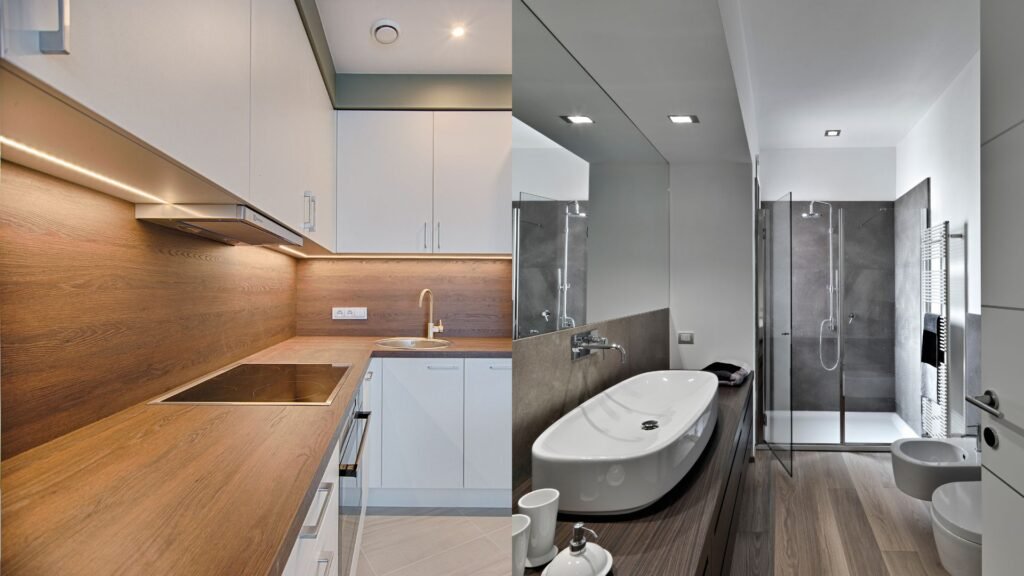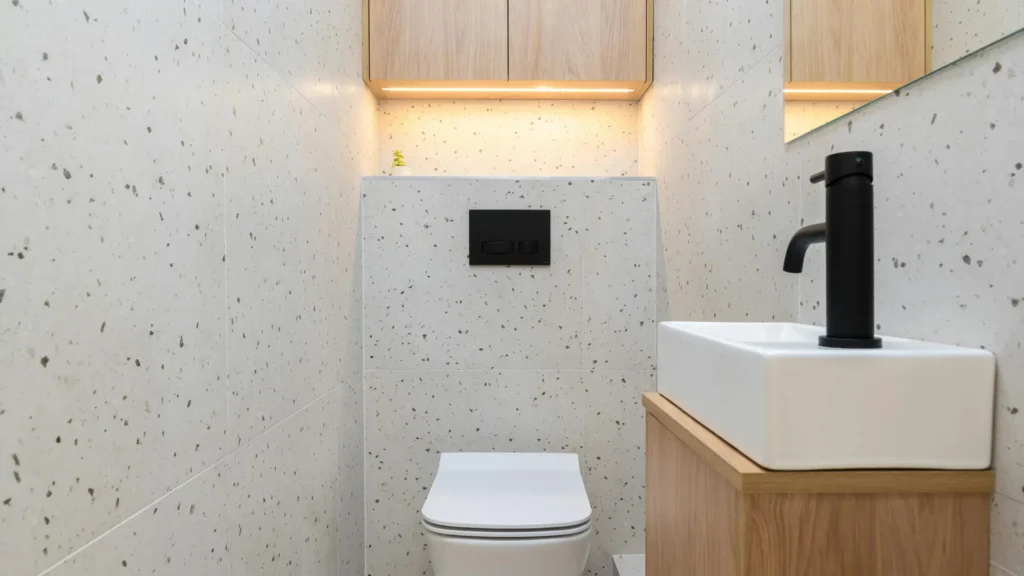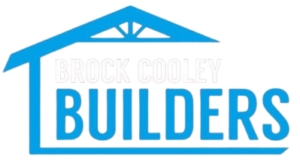Welcome to your go-to guide on new build homes in NZ, a must-read if you’re thinking about buying or building a brand-new home anywhere across the country. Whether you’re a first-time buyer, upgrading your lifestyle, or looking for a low-maintenance investment, new builds offer modern design, energy efficiency, and the freedom to choose what works for you. But there’s more to it than just picking a plan and signing a contract. In this article, you’ll get a clear overview of the types of new builds available, key steps in the buying process, what to expect financially, and the most common mistakes to avoid, so you can make smarter, more confident decisions about your next home.
New build homes in NZ are newly constructed residential properties that have never been lived in before. They include turnkey homes, house and land packages, and custom builds. Buyers benefit from modern designs, energy-efficient features, low maintenance, and compliance with current building codes. These homes are popular for first-time buyers and investors looking for a fresh, move-in-ready option.
Table of Contents
What Are New Build Homes?
Buying a home is a big step, and knowing what type of property you’re investing in matters. In New Zealand, new build homes have become an attractive option for many homebuyers, and for good reason. Whether you’re a first-time buyer or simply looking for a low-maintenance, modern place to live, new builds offer a level of convenience, efficiency, and peace of mind that existing homes often can’t match.
What Counts As A “New Build” In The NZ Property Market
A new build home is a property that has been newly constructed and has never been lived in before. It’s completely fresh, built from the ground up, usually within the last few months. These homes comply with the latest New Zealand Building Code, include up-to-date materials and technologies, and often come with building warranties that give buyers added protection.
In legal or financial terms, a property is generally considered a new build if it:
- Has not been previously owned or occupied.
- Was built as part of a development, subdivision, or private custom build.
- Qualifies for First Home Grants and KiwiSaver withdrawals under the “new build” criteria.
Types Of New Build Homes In New Zealand
New builds come in different forms, and it’s important to understand the differences so you can choose what fits your budget, timeline, and lifestyle.
Turnkey Homes
These are homes that are fully built by a developer. You pay a deposit upfront, and the rest is due once the home is completed and ready to move into. It’s a hands-off approach, ideal if you don’t want to manage construction stages or unexpected changes. The price is usually fixed, making it easier to budget.
House And Land Packages
This option lets you purchase a section of land and a home design as a bundle. You’ll typically deal with progress payments throughout the build. It gives you a bit more say in the layout, finishes, and materials, but it also means more involvement in the process and potential construction delays.
Custom Builds
A custom build gives you complete freedom. You purchase your own land, hire an architect or design team, and choose a builder. You control everything from floorplans to roofing material. It’s the most flexible option, but also the most time-consuming and expensive.
New Builds Vs. Existing Homes
New Build Homes
- Move-in ready with minimal to no maintenance.
- Built to modern insulation, heating, and ventilation standards.
- Often come with 10-year structural warranties.
- May qualify for first home buyer benefits.
- Fixed price contracts are common, reducing financial surprises.
Existing Homes
- Often located in established suburbs with mature infrastructure.
- May need repairs, upgrades, or renovations.
- Less energy efficient unless recently retrofitted.
- Pricing can be more negotiable based on condition and urgency.
If you value customization, energy savings, and long-term peace of mind, a new build might be the right fit. But if you prefer a home with character, quicker availability, and a potentially lower upfront cost, an existing property may work better.
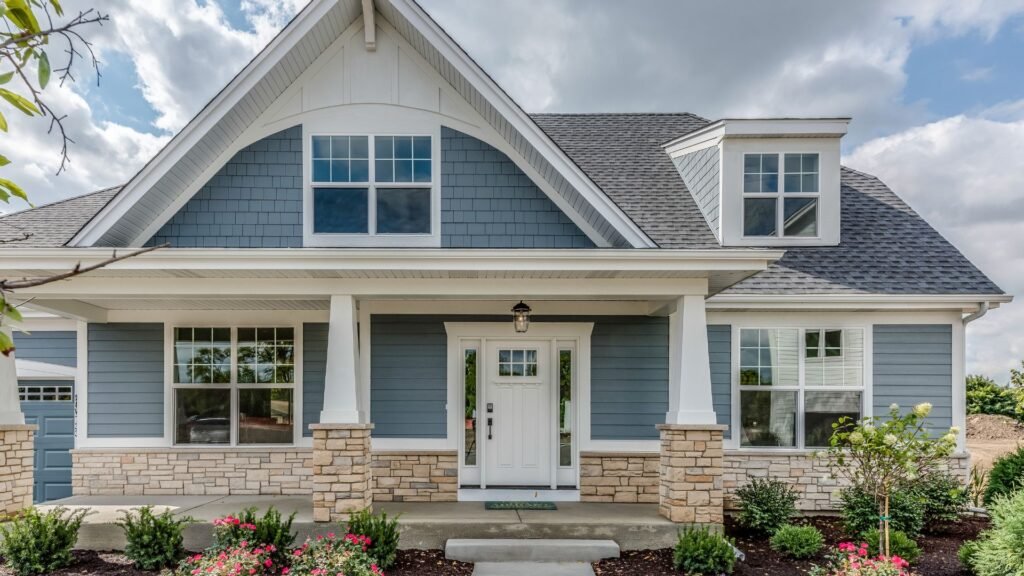
Why Kiwis Are Choosing New Builds
More and more people across New Zealand are turning to new build homes, and for good reason. Whether you’re a first-time buyer, a growing family, or someone looking to downsize, new builds offer clear advantages over older homes. They’re modern, efficient, and designed to match today’s lifestyle needs. Here’s why many Kiwis are making the shift.
Low Maintenance: No Renovations Or Repairs
One of the biggest draws of a new build home is peace of mind. Since everything is brand new, from the roof and plumbing to the appliances and flooring, you won’t be dealing with leaky pipes, drafty windows, or unexpected repairs anytime soon. There’s no need to budget for renovations or worry about what’s behind the walls. For busy homeowners, this means fewer headaches and more time to enjoy your space.
Energy-Efficient Features: Insulation, Double Glazing, Solar Options
New homes in NZ must meet strict building code standards, especially when it comes to energy efficiency. Most new builds come with proper wall and ceiling insulation, double-glazed windows, and energy-efficient heating systems. Some even offer solar panel upgrades or smart home features. These additions don’t just make your home more comfortable, they can lower your power bills and reduce your carbon footprint.
Customization: Choose Layout, Materials, Design
New builds give you the chance to create a home that actually works for you. Depending on the developer and type of build, you can often choose the layout, colors, fixtures, and finishes. Want an open-plan kitchen? Prefer a bigger garage? Need a home office? You can work those into the plan before construction begins. This level of customization is rare with existing homes, where you often have to compromise or spend thousands on renovations.
Government Incentives: First Home Grant Eligibility
New builds also open the door to valuable government support, especially for first-time buyers. If you meet the income and deposit requirements, you may qualify for the First Home Grant, giving you up to $10,000 per person towards a new build. In addition, new builds usually fall within the price limits required for this grant and may allow you to access more of your KiwiSaver funds. These incentives can significantly lower your upfront costs and make homeownership more achievable.
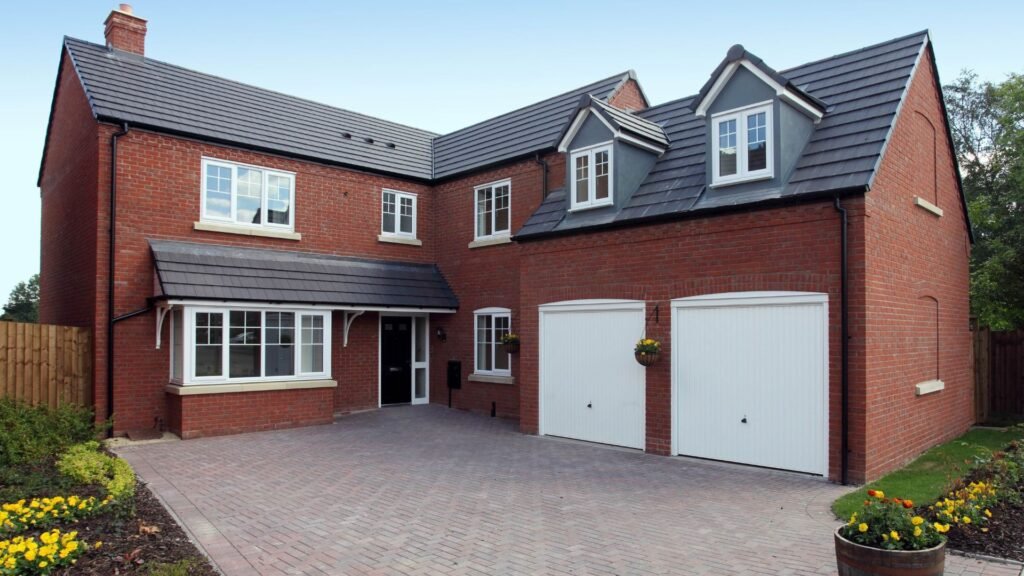
Key Steps To Buying A New Build Home In NZ
Buying a new build home in New Zealand is exciting, but it also comes with steps that are very different from purchasing an existing property. You’re not just buying a finished house, you’re investing in a process. Whether you’re a first-time buyer or someone upgrading your current home, here’s what you need to know to make smart decisions at every stage.
Research Developers And Locations
Before you fall in love with a design, start with the basics, who is building the home and where.
Look into developers that have a track record of completed projects. Search online reviews, ask for references, and visit previous builds if possible. A reputable builder should be a Licensed Building Practitioner and ideally part of the Master Builders Association. These credentials add a layer of protection and quality assurance.
Location matters just as much. Think about:
- School zones
- Public transport
- Growth potential in the area
- Proximity to parks, shops, and work
Even with a great design, a bad location can affect your lifestyle and future resale value.
Understanding The Buying Process For Off-The-Plan Or Under Construction Homes
There are two main types of new build purchases in NZ: off-the-plan and under construction.
Off-the-plan means the home hasn’t been built yet. You’re buying based on plans, brochures, and show homes. Under construction means the build has started, and you may still have some input on design or finishes.
Here’s how the process usually flows:
- Sign a sale and purchase agreement
- Pay a deposit (usually 10%)
- Secure finance approval (special home loan structures may apply)
- Monitor construction milestones
- Complete a pre-settlement inspection
- Receive Code Compliance Certificate (CCC)
- Settle and move in
Always review contracts carefully. It’s smart to have a lawyer experienced in property law go through the paperwork before signing anything.
What To Expect During Each Stage
A new build doesn’t happen overnight. Knowing what to expect helps reduce surprises.
Deposit
Most developers require a deposit upfront, typically 10% of the total price. This secures your interest in the property.
Progress Payments
If you’re on a progressive payment contract (common with house and land packages), you’ll make payments at key stages of construction like:
- Foundation laid
- Framing complete
- Roof on
- Interior fit-out
- Completion
For turnkey homes, you usually pay a full lump sum only after the home is completed.
Handover
Before settlement, you’ll have a final inspection. If anything is incomplete or incorrect, now’s the time to raise it. After final payment, the keys are handed over, and the home is officially yours.
Importance Of Building Inspections, Even For New Builds
Many buyers assume that a brand-new home means everything is perfect. That’s not always the case.
New builds can still have:
- Plumbing issues
- Poorly finished walls
- Faulty wiring
- Incomplete landscaping
Hiring an independent building inspector protects you from unexpected repairs later. The inspection should be done before settlement and include a full written report.
Even with a Code Compliance Certificate, it’s worth getting a second opinion. You’re making a major financial commitment, don’t skip the checks.
Buying a new build home in NZ can be smooth and rewarding if you know what to expect. Take the time to research, ask questions, and get the right professionals on your side. Every step you take before move-in day helps ensure you’re getting the home you’ve paid for, without the stress or regrets.
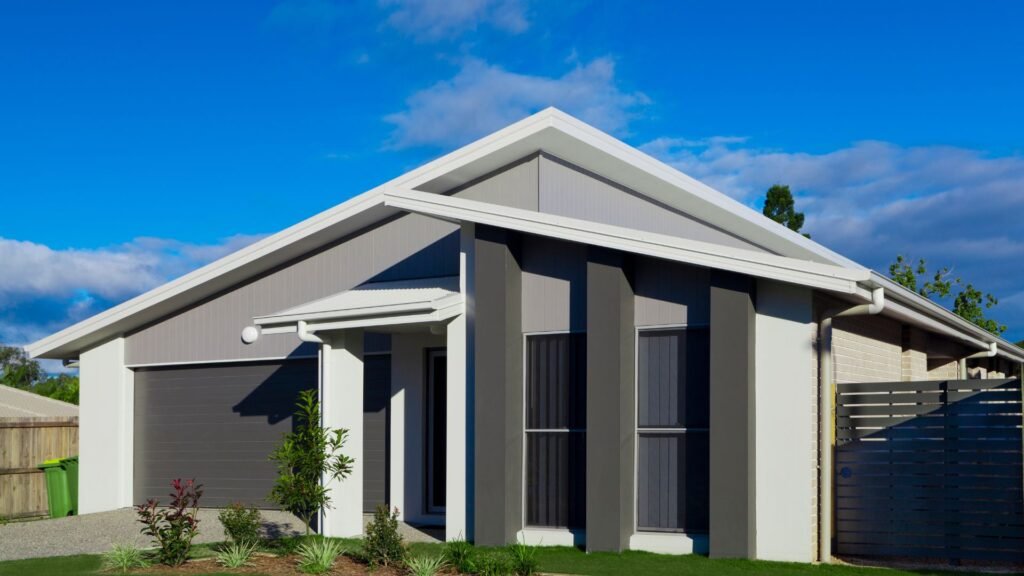
Pros And Cons Of New Build Homes
Choosing between a new build home and an existing property can be a big decision, especially in New Zealand’s changing housing market. Each option has its own trade-offs. Below, we’ll look at the real-world pros and cons of new build homes to help you weigh your choices.
You’ll learn what benefits you can expect from a brand-new property, and what challenges to keep in mind before signing a contract.
Pros
Warranties And Guarantees (Like 10-Year Building Act Protection)
New build homes in NZ come with strong legal protection under the Building Act. This usually includes a 10-year warranty that covers structural issues, defects, and workmanship. Many developers also offer additional guarantees, such as those backed by Master Builders or Certified Builders. These protections give buyers peace of mind, especially for first-time homeowners.
Lower Upkeep For The First Few Years
One of the biggest benefits of a new build is that everything is brand new. You won’t need to worry about replacing old roofing, fixing plumbing, or updating insulation. This can save you thousands in maintenance over the first five to ten years. It also means fewer unexpected repairs and more predictable living costs.
Compliance With Current Building Codes
New homes must meet today’s NZ Building Code standards. That includes better insulation, double-glazed windows, smoke alarms, and efficient heating. These features help reduce energy bills and improve indoor comfort. Many homes also come wired for modern living—with USB charging points, home security systems, and fibre-ready connections.
Cons
Delays In Construction
While new builds offer long-term rewards, they often come with short-term delays. Weather, material shortages, council approvals, or labour constraints can slow things down. Even with a clear timeline, it’s common for projects to run several weeks, or months, behind schedule. This can be stressful, especially if you’re juggling a rental or a property sale.
Limited Ability To Negotiate Price
With new builds, especially turnkey or off-the-plan homes, the price is usually fixed. Developers rarely lower prices because they’re working with tight margins. You might be able to negotiate small extras, like appliances or landscaping, but there’s less room for back-and-forth than with existing homes.
Waiting Time Vs. Buying Existing
If you need to move quickly, a new build may not be the best choice. Building a home takes time, and even ready-to-move turnkey options involve waiting for title transfers, final inspections, and compliance checks. In contrast, you can often move into an existing home within a few weeks of signing the contract.
New build homes in NZ are ideal for buyers who want low-maintenance living, modern design, and up-to-date safety standards. But they also require patience, planning, and flexibility, especially when it comes to timelines and costs. By understanding the pros and cons upfront, you’ll be in a better position to choose a home that matches your needs, budget, and long-term goals.
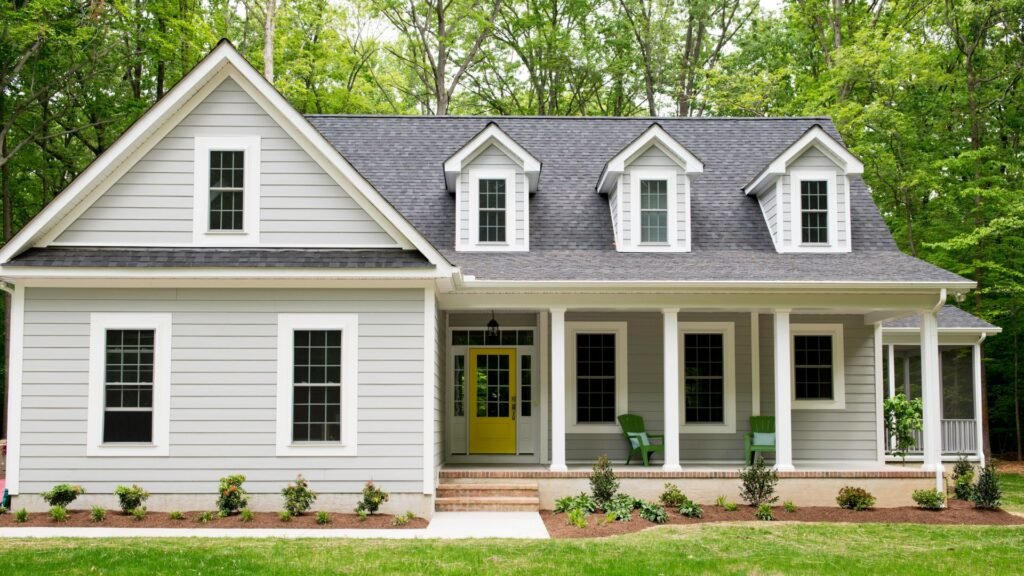
Popular Regions In NZ For New Build Homes
New build homes are in demand all over New Zealand, but some regions stand out more than others. These areas offer a mix of growth potential, liveability, lifestyle, and housing developments that appeal to first-home buyers, families, and investors alike.
Here’s a breakdown of the most popular regions in NZ for new build homes, and what makes each one a smart choice.
Auckland: Growth Areas With New Suburbs
Auckland remains the busiest region for new housing developments in the country. While inner-city properties are limited and expensive, growth areas on the outskirts are booming with new build opportunities.
Key suburbs to watch:
- Westgate: A rapidly developing area in the northwest with shopping centres, schools, and transport links.
- Pukekohe: Popular with families looking for space and value, while still commuting to central Auckland.
- Papakura: A growing hub in South Auckland with affordable house and land packages.
Active developers in Auckland:
- GJ Gardner Homes
- Signature Homes
- Jennian Homes
- Fletcher Living
These companies offer everything from turnkey homes to custom builds in new subdivisions, with a focus on family-friendly neighbourhoods and long-term growth.
Christchurch: Affordable Land And Master-Planned Communities
Christchurch continues to attract buyers thanks to its availability of flat, affordable land and well-planned residential areas. Following the rebuild efforts, many suburbs are new or recently upgraded.
Popular new build locations:
- Halswell: Known for modern subdivisions, parks, and access to the city.
- Rolleston: One of NZ’s fastest-growing towns, ideal for families and first-home buyers.
- Wigram: A master-planned suburb with schools, retail, and recreational facilities.
Leading developers in Christchurch:
- Mike Greer Homes
- Fowler Homes
- Golden Homes
These builders are known for delivering high-quality homes in both urban and lifestyle zones.
Wellington And Surrounding Areas
Wellington has limited flat land, so new builds are often found in surrounding areas where there’s room for growth and better value.
Top areas for new builds:
- Upper Hutt and Lower Hutt: Offering more space and lower prices than central Wellington.
- Porirua: A key area for government housing developments and private subdivisions.
- Kapiti Coast: Popular for coastal living within reach of the capital.
Notable developers active in the region:
- Classic Builders
- Generation Homes
- David Reid Homes
These developers cater to a range of budgets and offer both modern designs and eco-conscious features.
Tauranga, Hamilton, And Queenstown: Lifestyle Meets Growth
These regions combine natural beauty, strong local economies, and high demand for new housing.
Tauranga
One of the most desirable places to live in NZ. Families and retirees are drawn to its beaches and relaxed pace. Suburbs like Papamoa and Pyes Pa offer many new build options.
Hamilton
A fast-growing city with a strong job market, Hamilton is ideal for first-home buyers and investors. Peacocke and Rototuna are popular new build zones.
Queenstown
Known for luxury homes and holiday properties, Queenstown’s new builds tend to target high-end buyers or investors looking for rental returns. Areas like Jack’s Point and Hanley’s Farm are hotspots for stylish, modern builds.
Top developers in these areas:
- Classic Builders
- Urban Homes
- Stonewood Homes
They offer options tailored to local lifestyle needs, whether it’s a beachside family home, a city townhouse, or a luxury alpine retreat.
Each of these regions brings something different to the table. Whether you want affordability, lifestyle, growth potential, or long-term investment value, NZ’s regional housing developments offer a wide variety of new build options worth exploring.
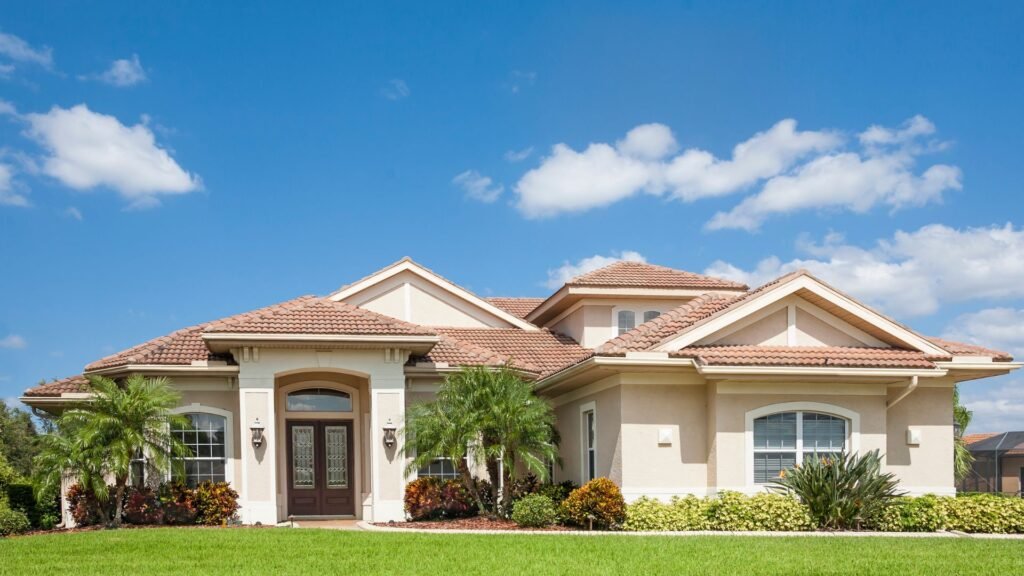
What To Look For In A New Build Developer
Choosing the right developer is one of the most important decisions you’ll make when buying or building a new home in New Zealand. A skilled and trustworthy developer can make the process smoother, more transparent, and less stressful. On the other hand, a poor choice can lead to delays, budget blowouts, or even legal issues.
Below are the key things to look for when assessing new build developers in NZ. These will help you find someone reliable, experienced, and aligned with your needs.
Licensing And Credentials (e.g., Master Builders, Licensed Building Practitioner)
Start by checking if the developer or builder is properly licensed. In New Zealand, builders should be registered as Licensed Building Practitioners (LBP) through the Ministry of Business, Innovation and Employment. This means they meet the required standards for residential construction.
Also, look for membership in trusted industry bodies such as the Registered Master Builders Association or the New Zealand Certified Builders Association. These groups often require members to meet higher standards of workmanship and ethics. Builders under these schemes often offer guarantees (like the 10-year Master Build Guarantee), giving you extra peace of mind.
If a developer isn’t willing to show proof of licensing or certification, treat that as a red flag.
Portfolio And Completed Projects
Reviewing a developer’s past work is one of the best ways to assess their quality. Ask to see photos or visit completed homes, and check if their building style matches what you’re looking for.
Pay attention to the details, materials used, finish quality, layout, and design flow. Have they worked on similar projects to yours? Do their homes look well-built and modern? Are their designs functional for real life?
If possible, ask how long their projects took to complete and whether they met the expected timelines. Developers with a strong, consistent portfolio usually have a process in place to manage builds efficiently.
Reviews From Previous Buyers
Online reviews can reveal a lot about a builder’s reputation. Look for feedback on Google, Facebook, or real estate forums. Read both positive and negative reviews carefully to spot patterns.
You might find reviews that mention:
- Missed deadlines
- Poor communication
- Budget overruns
- Excellent customer service
- Quality craftsmanship
Also, try to speak directly with past clients if the builder is open to it. Ask about their experience, how issues were handled, and whether they’d recommend the developer again.
Good developers value their reputation and are usually happy to connect you with satisfied clients.
Transparent Contracts And Build Timelines
A reliable developer will offer clear, detailed contracts that spell out every cost, stage, and obligation involved in the project. There should be no hidden fees, vague promises, or confusing clauses.
Before signing anything, make sure the contract includes:
- A fixed-price structure (where possible)
- Payment milestones
- A realistic construction timeline
- Details about changes or upgrades
- A clause for delays and how they’re handled
Timelines should be achievable, not overly optimistic. If a developer promises to finish in record time, ask how they plan to make that happen and what risks are involved. Transparency here shows professionalism and builds trust.
Looking for the right builder is worth your time. It sets the tone for your entire home-buying journey. Choose someone who communicates clearly, has a proven track record, and stands by their work. It’s your home, make sure it’s built by someone who values quality as much as you do.
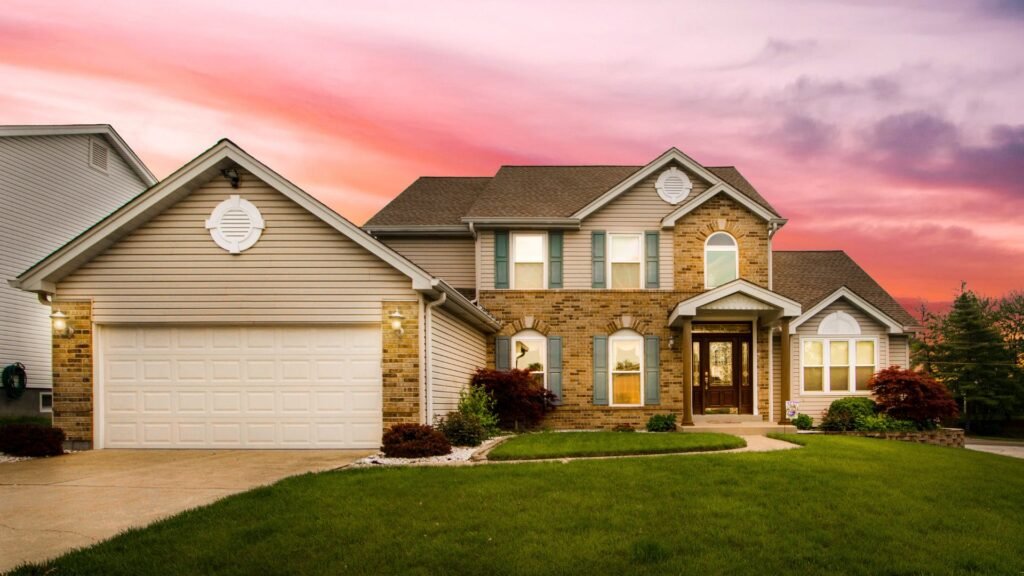
Custom Build Vs. House And Land Package
Choosing between a custom build and a house and land package is one of the most important decisions you’ll make when buying a new home in NZ. Each option offers its own set of benefits and trade-offs. The right choice depends on your lifestyle, budget, timeline, and how much involvement you want in the building process.
What Is A Custom Build?
A custom build means you start with a blank canvas. You choose your section, hire your own architect or designer, and work with a builder to create a home that fits your exact vision. Every detail, from the layout to the tapware, is in your control.
Key Benefits
- Full creative control over the design
- Can be tailored to future needs or specific land features
- Higher potential resale value due to uniqueness
Things To Consider
- More expensive due to design and planning fees
- Takes longer due to council approvals and custom planning
- You’ll need to manage more decisions and coordination
What Is A House And Land Package?
A house and land package is offered by developers who sell both a section and a pre-designed home together. In most cases, you can choose between a few layout options, but the design is mostly set. Construction starts once contracts are signed and consents are approved.
Key Benefits:
- Fixed price makes budgeting easier
- Faster build time compared to a custom home
- Less decision-making needed
- Turnkey options available (move in once it’s ready)
Things To Consider:
- Limited customization options
- You may end up with a home similar to others in the area
- Some packages don’t include landscaping or driveways
Control, Cost, Time, And Complexity
Control
- Custom builds offer the most freedom but require more involvement.
- House and land packages offer limited flexibility but less stress.
Cost
- House and land packages start from around $600,000 in regional areas and $750,000+ in cities like Auckland or Wellington.
- Custom builds can range from $800,000 to $1.2 million or more, depending on the design and location.
Time
- House and land builds typically take 4 to 8 months.
- Custom builds can take 9 to 15 months or longer, especially if you’re building on a complex site.
Complexity
- Custom builds require dealing with architects, engineers, and councils.
- House and land packages simplify the process, developers handle most of it for you.
Which Option Is Right For You?
Go With A Custom Build If
- You have a flexible timeline and budget
- You want to design every part of your home
- You have specific lifestyle needs or land constraints
Choose A House And Land Package If
- You want a faster, simpler process
- You’re buying your first home or downsizing
- You want price certainty and lower risk
Both custom builds and house and land packages offer a path to owning a new home in NZ, but they suit different types of buyers. If you value full creative control and don’t mind the extra effort, a custom build could be worth it. If you prefer convenience and a predictable process, a house and land package might be the smarter choice.
Make sure to compare both options carefully, ask questions, and think long-term. A little planning now can save you thousands later, and help you get the home that truly fits your life.
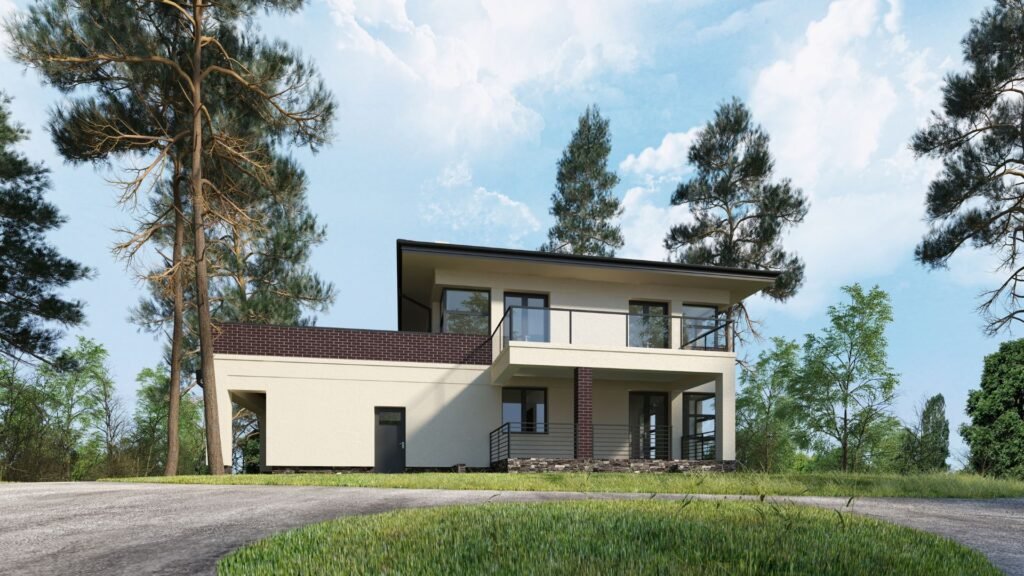
Budgeting And Hidden Costs To Watch Out For
When you’re planning to buy or build a new home in New Zealand, it’s easy to focus only on the price you see in ads or on the builder’s website. But the truth is, that number usually covers the bare essentials, and not much more. If you don’t plan ahead, unexpected costs can quickly stack up and push you over budget. This section breaks down the real-world expenses that many buyers don’t see coming until it’s too late.
Beyond The Advertised Price
That $699,000 price tag might sound great, but ask yourself, what does it actually include? Most base prices for new build homes cover the structure itself and some internal finishes. What they often don’t include are:
- Fencing: Some developments deliver homes without fences at all. You’ll need to build them yourself to secure your property and meet council rules, especially if you have pets or kids.
- Landscaping: Many new builds come with a patch of dirt out front and nothing more. If you want grass, plants, a patio, or a garden, that’s on you.
- Driveways And Paths: In some cases, builders leave these out of the contract. Pouring concrete or laying pavers could add thousands to your final bill.
If you’re not careful, these extras can cost $10,000 to $30,000 or more, depending on size and location.
Legal Fees, Consents, And Connection Fees
There’s more to closing a deal than just signing a contract. You’ll need:
- A Solicitor Or Conveyancer: Legal fees can range between $1,500 to $3,000, depending on how complex the agreement is.
- Council Consents And Approvals: Your build needs official sign-off at multiple stages. Some developers include these, but others charge separately. Always confirm who’s responsible.
- Utility Connections: Power, internet, water, and gas aren’t always hooked up by default. Connection fees vary but can run into the thousands if your site is not already serviced.
Don’t forget the Code Compliance Certificate (CCC), you can’t move in without it, and if your build isn’t fully up to code, you’ll face delays and extra costs.
Interest During Construction
If you’re using a construction loan, this one’s for you. Unlike a standard home loan where you start paying after settlement, construction loans are paid out in stages, called progress payments.
Here’s the catch:
- You pay interest on each stage as it’s drawn down.
- That means you’re covering loan interest while also paying rent (if you’re not living on-site).
- Over 6 to 12 months, this can add thousands of dollars to your budget.
Talk to your mortgage adviser about how much interest you’ll be paying and whether you can afford it during the build period.
Unexpected Changes Or Upgrades
One of the most common surprises comes from changes you didn’t plan, or upgrades you can’t resist. Some examples:
- Swapping laminate for stone benchtops.
- Upgrading to tiled bathrooms or premium flooring.
- Adding extra power points, lighting, or smart home features.
- Extending decks or patio areas during the build.
While many of these changes improve comfort or resale value, they come at a price. And once construction starts, changes are more expensive to make. Always ask for a detailed list of inclusions and exclusions before signing anything, and keep a buffer in your budget for last-minute decisions.
Planning for these hidden costs means fewer surprises and less financial stress down the track. If you go in with your eyes open and your budget padded, you’ll be in a much better position to enjoy the benefits of your new home, without the headaches.
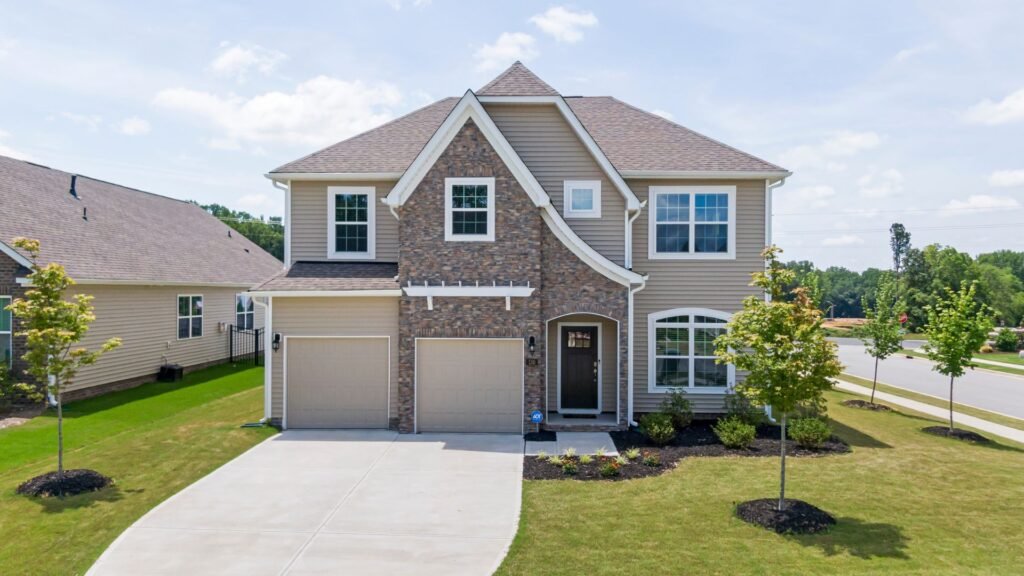
Financing Your New Build Home
When you’re looking to build or buy a new home in New Zealand, understanding how the financing works is just as important as choosing the right section or builder. New builds have different lending rules compared to existing properties, and knowing what to expect can help you avoid surprises. Below, we’ll break down how home loans for new builds work, the difference between loan types, and how first home buyers can tap into grants and KiwiSaver.
How Home Loans For New Builds Work In NZ
Banks and lenders treat new build loans differently because construction involves multiple stages. Instead of one lump sum, your loan is often paid out in parts based on how far along the build is. This staged approach protects both you and the lender, ensuring money is only released as the project progresses.
There are two main types of home loans you’ll encounter when financing a new build in NZ: turnkey loans and progressive drawdown loans. The one that applies to you depends on the type of build you’re going for.
Turnkey Vs. Progressive Drawdown Loans
Turnkey loans are ideal for people buying a completed home from a developer. You typically pay a deposit (often 10%) upfront, and then nothing more until the house is finished and ready to move in. It’s simple, and there’s no need to deal with staged payments or building updates. The key benefit? You avoid paying interest while the home is under construction.
Progressive drawdown loans, on the other hand, are used when you’re managing the build or working with a builder on a house and land package. The bank releases money in chunks, known as drawdowns, after key milestones, like laying the foundation, framing, roofing, etc. You pay interest only on the amount drawn so far. This loan gives you more control but also requires more paperwork and involvement.
First Home Grant And KiwiSaver Use For New Builds
If you’re a first-time buyer, you’re in luck. New build homes in NZ often qualify for government support schemes like the First Home Grant and KiwiSaver First-Home Withdrawal.
With the First Home Grant, you could get up to $10,000 towards your deposit, $2,000 for each year you’ve been contributing to KiwiSaver (minimum three years), up to five years. The grant amount is higher for new builds than existing homes, which is a major plus.
KiwiSaver funds can also be withdrawn to help with your purchase. As long as you meet the eligibility criteria, you can use almost all of your KiwiSaver balance (except for the $1,000 government kick-start) for your new build deposit or settlement payment.
These two options combined can make a big difference in getting your financing approved, especially if you’re short on cash for a deposit.
Tips For Getting Pre-Approval
Getting pre-approval for a home loan is a smart first step. It gives you a clear budget, helps you act faster when you find the right property, and makes your offer more attractive to developers or sellers.
Here are some quick tips:
- Start early: Talk to your bank or broker before you begin shopping for land or builders.
- Gather paperwork: Lenders will want proof of income, bank statements, ID, and a breakdown of your KiwiSaver and savings.
- Ask about conditions: Pre-approvals for new builds often come with specific conditions related to the property, builder, or build timeline.
- Watch your credit score: Any debt or missed payments can affect your application, so keep your finances in check.
- Get professional advice: A mortgage broker who understands new builds can help guide you through different lenders’ requirements.
Financing a new build might sound complex, but with the right knowledge and a bit of planning, it becomes manageable. Whether you’re going for a turnkey property or managing a custom build, understanding how each loan type works, what support you’re eligible for, and how to prepare can set you up for a smoother journey into home ownership.
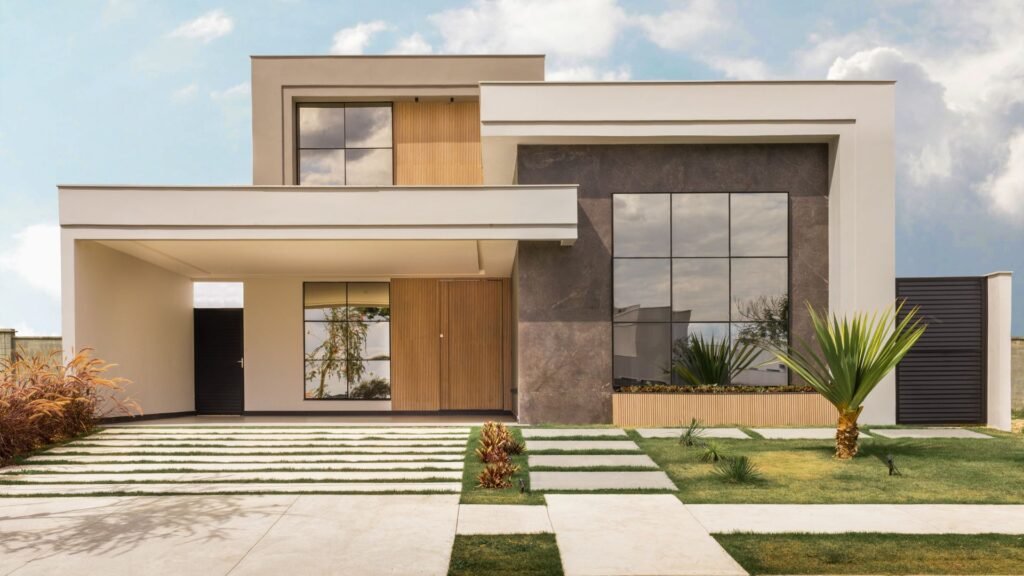
Legal And Compliance Checklist
When building or buying a new home in New Zealand, understanding the legal and compliance side is just as important as choosing the right design or location. This section breaks down the legal essentials every buyer should know to protect their investment and avoid costly surprises later. It’s not just paperwork, it’s your safety net.
Understanding Your Contract And Building Consents
Before signing anything, take time to review the building contract line by line. Don’t rely on assumptions, every builder has their own terms, and not all contracts are created equal.
Here’s what you should look for in the contract:
- Payment terms and milestones
- Estimated build time and what happens if there are delays
- Inclusions and exclusions (e.g., landscaping, driveways, curtains)
- What happens if material prices change
- Any variation fees or penalties
Get your lawyer to review the contract before signing. This is a step many buyers skip, but it can protect you from unexpected clauses that might shift liability onto you later.
Alongside the contract, make sure the builder has applied for all necessary building consents through your local council. Without this approval, construction can’t legally begin. A consent ensures your home meets the New Zealand Building Code, which covers things like structural integrity, fire safety, energy efficiency, and sanitation.
If you’re buying a house and land package or turnkey home, ask to see evidence that consents are in place. If you’re doing a custom build, confirm that your plans have been submitted and approved before the builder starts work.
Final Code Of Compliance Certificate (CCC)
The Code Of Compliance Certificate (CCC) is the official sign-off from your local council that the building work complies with the approved plans and the Building Code.
You should never settle or move in without it.
Why is the CCC important?
- It confirms that all work was done legally and to a minimum standard
- It protects your resale value, homes without CCC are harder to sell
- It may be required for home insurance or mortgage release
Ask your builder for a copy of the CCC as part of your handover documentation. Some developers might try to settle before the CCC is issued, but that puts you at risk if anything goes wrong.
If there’s a delay in getting the CCC, ask why. It could be due to incomplete work, missing inspections, or documentation errors. Stay on top of it, your money and legal protection depend on it.
Insurance And Warranties (E.G., Halo, Master Build)
One of the biggest advantages of new build homes in NZ is the access to warranties and insurance designed to protect homeowners from structural issues or builder defaults.
There are two main types:
- Master Build Guarantee: Offered by Registered Master Builders, this provides cover for up to 10 years. It includes loss of deposit, non-completion, defects, and structural issues.
- Halo Guarantee: A similar 10-year policy offered through NZ Certified Builders, with coverage for workmanship, materials, and completion.
Always check:
- What kind of warranty is offered
- Who is backing it (Master Build or Halo)
- What is covered and what is excluded
- Whether it’s transferrable if you sell the home
Also, confirm your builder has public liability insurance and builder’s risk insurance during construction. These policies protect against damage to property or injury on-site.
Without proper warranties and insurance, you’re fully exposed if something goes wrong. With them, you have peace of mind for years to come.
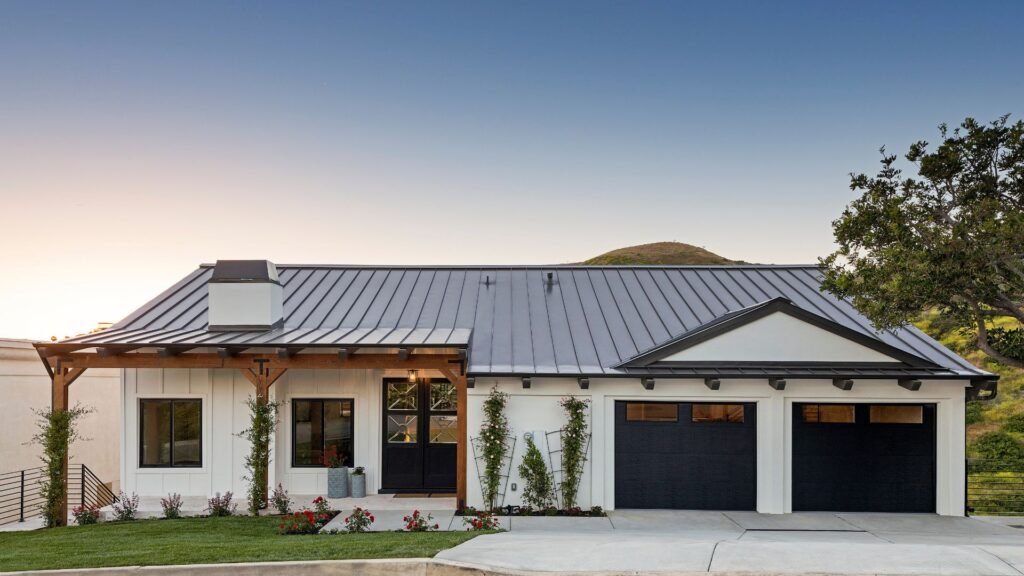
Mistakes To Avoid When Buying A New Build
Buying a new build home in New Zealand can be exciting, but it also comes with risks if you’re not careful. Many buyers rush into contracts or make assumptions that lead to expensive surprises later on. Below are the most common mistakes people make, and how to avoid them, so you can move forward with confidence and avoid costly regrets.
Not Reading The Fine Print
One of the biggest mistakes is signing a contract without fully understanding the details. Just because a home is brand-new doesn’t mean everything is guaranteed. Contracts for new builds can be complex, often filled with construction timelines, payment schedules, and clauses that favor the developer.
Always ask:
- What’s included and what’s considered an extra?
- Can the developer make design or price changes without your approval?
- Are there penalties if the build is delayed?
Have a lawyer go through the agreement line by line before you sign anything. It’s better to slow down than to be locked into terms you can’t change later.
Assuming All Costs Are Included
Many first-time buyers assume the price they see covers everything, but that’s rarely the case. The “base price” of a new build often includes only the house structure itself. You might need to pay extra for:
- Fencing and landscaping
- Driveways and paths
- Window coverings like curtains or blinds
- Appliance upgrades or air conditioning
- Connection fees for power, water, or internet
Some packages may also exclude painting, letterboxes, or even clotheslines. Before committing, ask for a detailed list of inclusions and optional extras. Always get quotes for finishing work so you know the full cost of moving in.
Choosing The Wrong Section Or Developer
Not all land or builders are equal. Some developers have better reputations, communication, and build quality than others. Likewise, not every piece of land is ideal.
Before signing anything:
- Research the developer’s past projects and reviews.
- Drive around existing homes they’ve built.
- Check if the section is prone to flooding or has soil issues.
- Ask about future developments in the area, like roads, schools, or commercial zoning.
Picking the wrong location or builder can lead to delays, stress, or lower resale value. Choose a team with a strong track record, clear communication, and a proven process.
Skipping Legal Or Financial Advice
Building a home is a major financial decision. Yet many buyers try to go it alone, without legal or financial guidance, only to run into trouble later.
You need:
- A lawyer experienced in property and building contracts
- A mortgage broker who understands construction lending A full breakdown of how payments will be made (especially for progress payments)
- A plan for what happens if there are delays or cost increases
Professional advice doesn’t just protect you legally, it helps you make smarter decisions and avoid overspending.
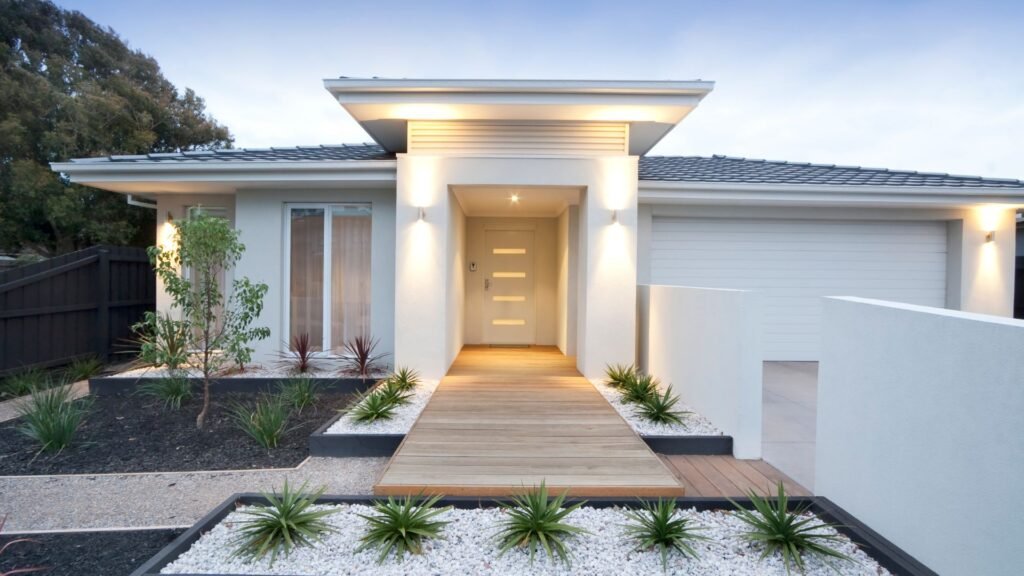
Tips To Get The Most Out Of Your New Build
Buying a new build home in New Zealand is an exciting step, but it’s also a big investment. If you want to get the most value, comfort, and long-term benefit from your new property, you need to plan smart from day one. Here’s how to make sure you’re not just building a house—but a home that meets your needs today and adds value for tomorrow.
Choose A Flexible Floorplan
One of the biggest advantages of a new build is that you often get to choose or tweak the layout. Take full advantage of that. Go for a floorplan that gives you options as your life changes. Maybe it’s a second lounge that could turn into a home office or a guest room. Maybe it’s an open-plan kitchen with room for upgrades later. Avoid layouts that are too rigid or trendy, what looks good now might not work in five years.
Think About Long-Term Resale Value
Even if you’re planning to stay for a while, think ahead. Pick a design, size, and location that will appeal to future buyers. Three-bedroom homes tend to hold value better than two-bedroom ones. North-facing homes often get more sunlight, which is a big plus in New Zealand. Stay away from ultra-unique features that could hurt resale, like awkward room shapes or unusual materials.
Add Features That Save Money Later
New builds give you the chance to install energy-efficient and cost-saving features right from the start. Think about:
- Heat pumps for reliable and efficient heating
- Solar panel wiring (even if you install panels later)
- LED lighting and double-glazed windows
- Insulation that exceeds the minimum standard
These upgrades may cost more upfront but can lower your power bills and increase your home’s value.
Visit Display Homes Before Making Decisions
Photos and plans only tell part of the story. Visit display homes to see how space really feels. Walk through rooms. Check the quality of finishes. Ask yourself if you can picture living there. Seeing a home in person also helps you ask better questions and avoid regrets later.
Don’t let uncertainty slow you down. Explore our services and tools designed to make your new build journey smooth from start to finish.
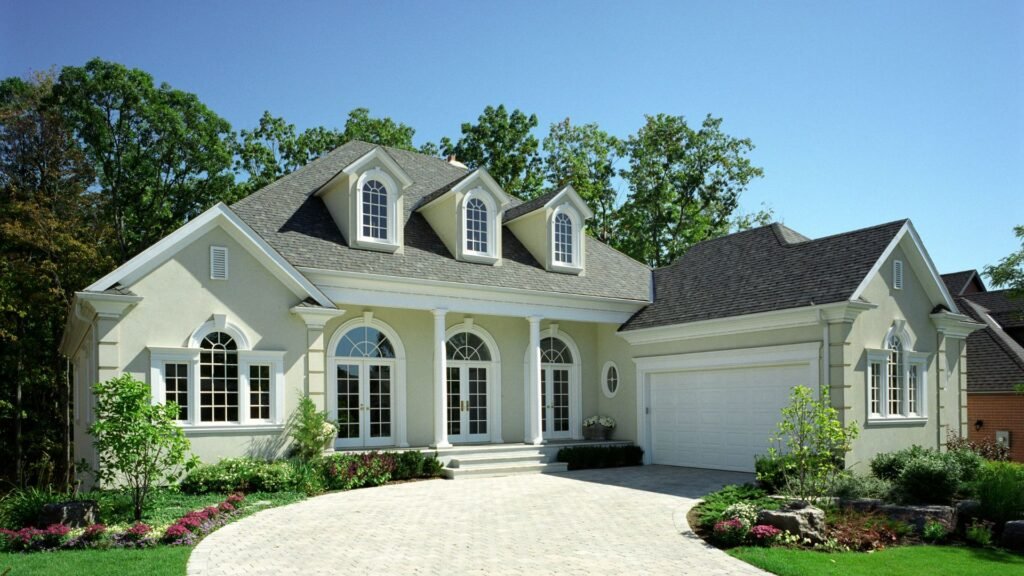
FAQs: About New Build Homes In NZ
What qualifies as a new build home in NZ?
A new build home is a property that has been newly constructed and has not been lived in before. It includes standalone houses, townhouses, or apartments built from scratch, as well as homes purchased off-the-plan, turnkey homes, or house and land packages.
Are new build homes eligible for first home buyer grants?
Yes. New build homes usually qualify for the First Home Grant and allow eligible buyers to withdraw KiwiSaver savings. New builds also often fall within the price caps set for first home buyer incentives.
What’s the difference between a turnkey home and a house and land package?
A turnkey home is completed by the developer, and you pay the full amount only when it’s ready to move in. A house and land package requires progress payments throughout the build, and the buyer has more involvement in the construction process.
How long does it take to build a new home in NZ?
The timeline varies depending on location, builder, and complexity, but most new builds take between 6 to 12 months. Delays due to weather, materials, or council approvals are also common.
Do I need a building inspection for a new build?
Yes. Even new homes can have defects or issues. It’s smart to hire a third-party building inspector to check workmanship before settlement, especially before the final Code Compliance Certificate is issued.
What hidden costs should I be aware of with new builds?
Common hidden costs include fencing, landscaping, driveways, window coverings, connection fees for power or internet, legal fees, and optional upgrades not included in the base price.
Can I make changes to the floorplan or design?
It depends on the developer and stage of construction. With custom builds, you have full control. With house and land packages, changes may be limited. Turnkey homes usually offer the least flexibility.
Are new build homes more energy-efficient?
Yes. Most new builds in NZ are built to current Building Code standards, which require proper insulation, double glazing, and better ventilation. Many include energy-saving features like LED lighting and efficient heating.
Is it cheaper to buy a new build or an existing home?
It depends on location, market conditions, and the specific home. New builds may have a higher upfront cost but can save money in the long run through lower maintenance and energy bills. They also offer long-term warranties.
What’s the risk of delays or price increases during the build?
Construction delays are common due to weather, material shortages, or consent processing. Fixed-price contracts help reduce risk, but some developers may include clauses that allow for price increases. Always review the contract with a lawyer.
Conclusion
Buying or building a new home is a big step, and it’s important to take your time, ask the right questions, and do thorough research before making any decisions. New build homes in NZ offer many advantages, from modern designs and energy efficiency to lower maintenance and better compliance with current building codes. Whether you’re a first-time buyer or looking to upgrade your living space, exploring new build options gives you the chance to find a home that fits your lifestyle, needs, and budget. With the right planning and a clear understanding of the process, you can move forward with confidence and make smart choices that lead to a home you’ll truly enjoy.
